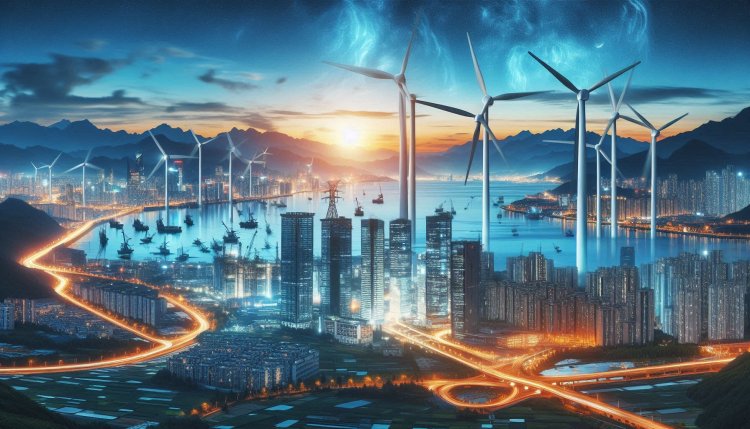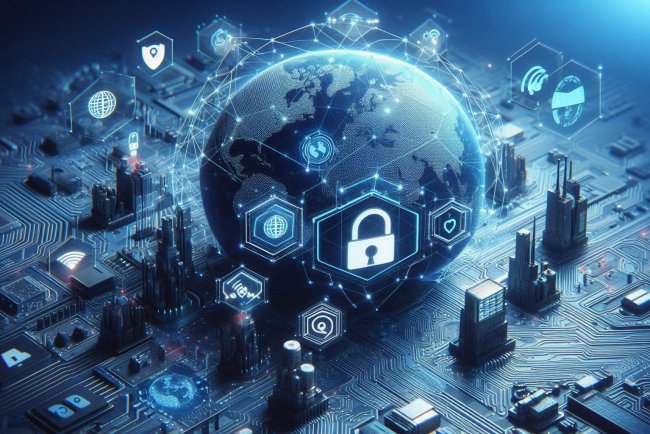Renewable Energy and Sustainable Urban Development
Explore the intersection of renewable energy and sustainable urban development to create greener, more efficient cities for a brighter future.

Renewable Energy and Sustainable Urban Development
In the face of climate change and the increasing demand for energy, the integration of renewable energy sources into urban development has become crucial for creating sustainable cities. Renewable energy offers a clean and environmentally friendly alternative to traditional fossil fuels, reducing greenhouse gas emissions and mitigating the impact of climate change. Sustainable urban development focuses on creating cities that are socially, economically, and environmentally sustainable, and renewable energy plays a key role in achieving this goal.
Benefits of Renewable Energy in Urban Development
There are several benefits of incorporating renewable energy into urban development:
- Reduced Environmental Impact: Renewable energy sources such as solar, wind, and hydro power produce electricity without emitting greenhouse gases, reducing air pollution and mitigating climate change.
- Energy Security: By diversifying energy sources and reducing reliance on fossil fuels, cities can enhance their energy security and reduce vulnerability to supply disruptions.
- Job Creation: The renewable energy sector creates jobs in manufacturing, installation, and maintenance of renewable energy technologies, contributing to economic growth and local employment.
- Cost Savings: Over time, renewable energy technologies can offer cost savings compared to traditional energy sources, as the costs of solar panels, wind turbines, and other technologies continue to decrease.
Integration of Renewable Energy in Urban Development
There are several ways in which renewable energy can be integrated into urban development:
- Solar Power: Installing solar panels on rooftops, parking lots, and open spaces can generate electricity for buildings and infrastructure, reducing reliance on the grid and lowering energy costs.
- Wind Power: Urban wind turbines can be installed in suitable locations to harness wind energy and generate electricity for local use, contributing to the city's energy mix.
- Hydropower: Small-scale hydropower systems can be integrated into urban water infrastructure, such as water treatment plants and wastewater facilities, to generate renewable electricity.
- Bioenergy: Organic waste from urban areas can be converted into biofuels or biogas through anaerobic digestion, providing a renewable energy source for heating and electricity generation.
Case Study: Barcelona, Spain
Barcelona, Spain, is a leading example of a city that has successfully integrated renewable energy into its urban development strategy. The city has set ambitious targets to reduce greenhouse gas emissions and increase the share of renewable energy in its energy mix. Some key initiatives in Barcelona include:
- Solar Power: Barcelona has installed solar panels on public buildings, parks, and residential areas to generate electricity and heat water, reducing the city's carbon footprint.
- Wind Power: The city has invested in urban wind turbines to harness wind energy and generate electricity, contributing to the local energy supply.
- Energy Efficiency: Barcelona has implemented energy efficiency measures in buildings, transportation, and public infrastructure to reduce energy consumption and promote sustainable practices.
- Public Transport: The city has expanded its public transportation system and invested in electric buses to reduce emissions from private vehicles and promote sustainable mobility.
Challenges and Opportunities
While the integration of renewable energy into urban development offers numerous benefits, there are also challenges that cities face in adopting sustainable energy solutions:
- Cost: The upfront costs of renewable energy technologies can be a barrier for cities with limited financial resources, although long-term savings and benefits often outweigh the initial investment.
- Regulatory Framework: Cities need supportive policies and regulations to incentivize the adoption of renewable energy and promote sustainable urban development.
- Infrastructure: Upgrading and integrating renewable energy infrastructure into existing urban systems can be complex and require careful planning and coordination.
- Public Awareness: Educating the public about the benefits of renewable energy and sustainable urban development is crucial for fostering community support and participation.
What's Your Reaction?

















